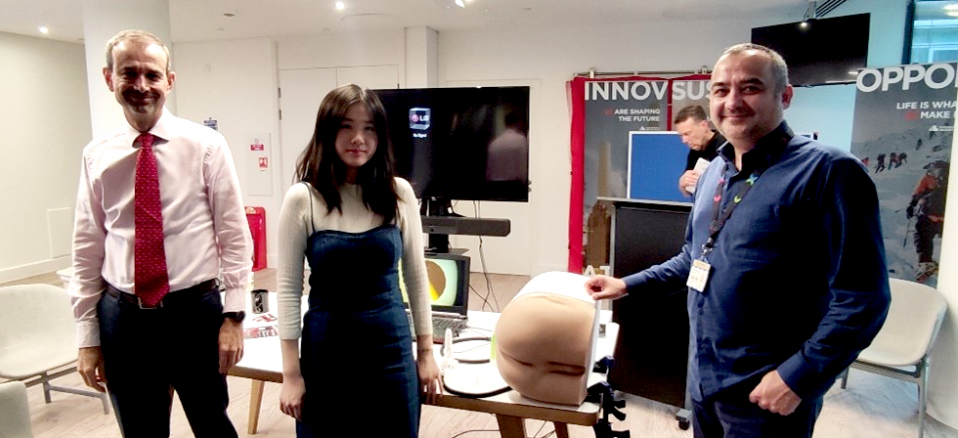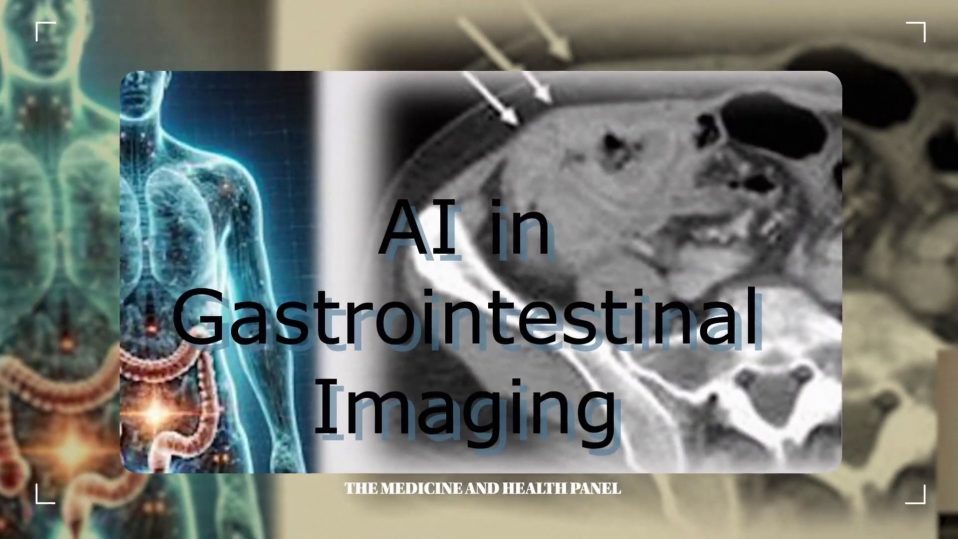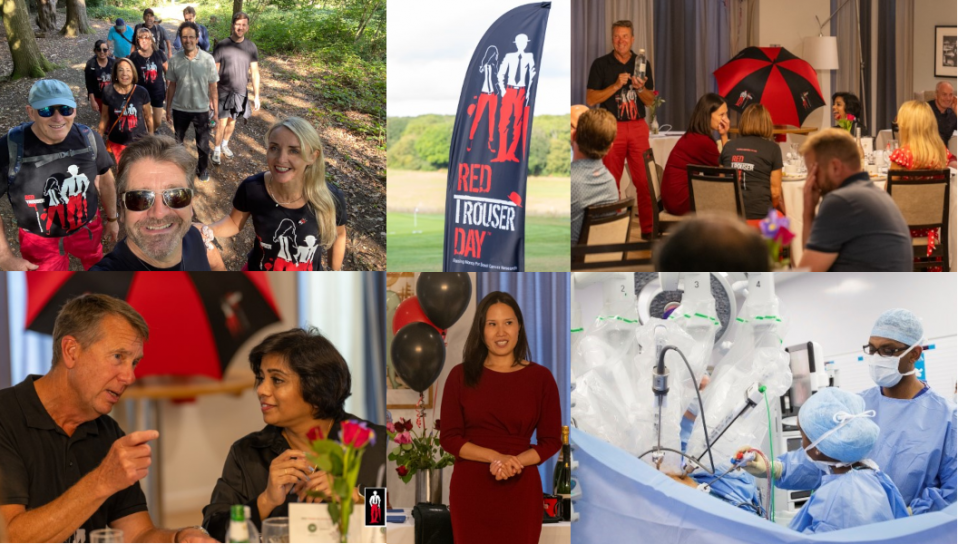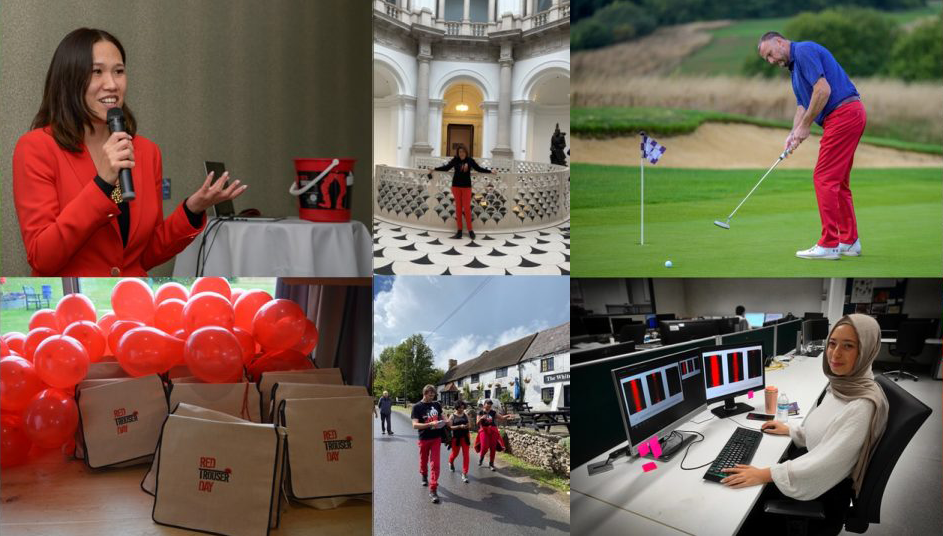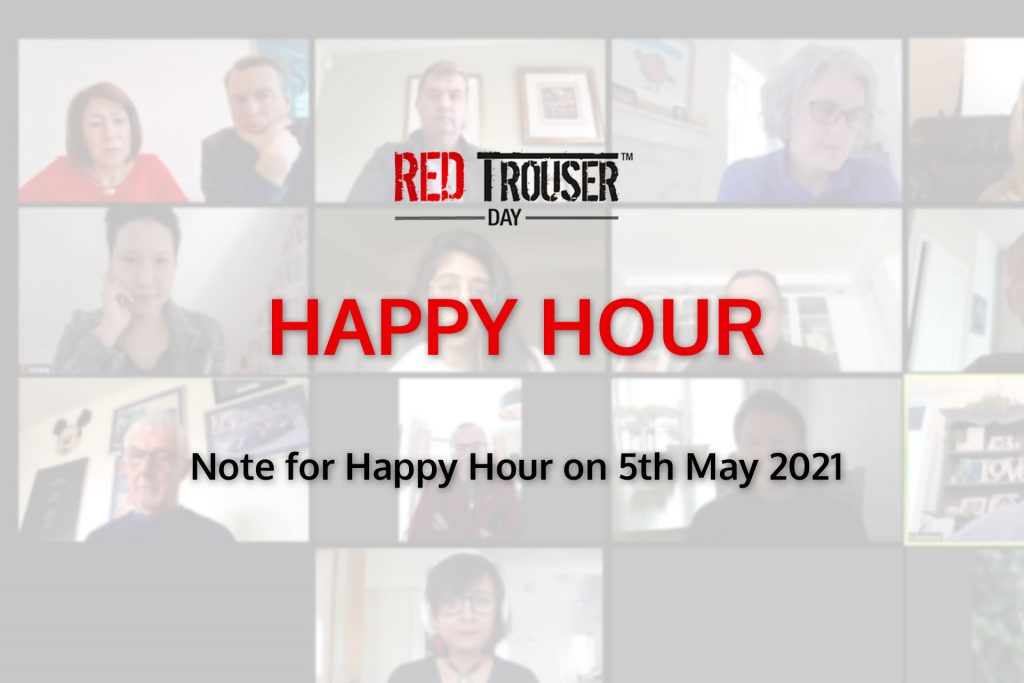
Note for Happy Hour on 5th May 2021
Thank you all who attended our last Happy Hour on the 5th May. I have waited until I knew who would be our guest to cover our next specialist subject before sending this note – as always, time flies and it is again only week before our next Happy Hour – next Wednesday!
Those of you who attended last time will know that we took a look at diet and nutrition in May with our guest speaker, Giovanni Ognio, a licenced nutritionist specialized in High Performance Sports, who is the head nutritionist and founder of LifeLifting https://lifelifting.pe/en/#home a nutrition company in Lima, Perú that works with patients from all around the world.
It was of course fitting to get a view on nutrition from a specialist after hearing from Dr Kontovounisios about the impact of diet on the development of diverticula in our gut that can lead to severe diseases. By the way, Dr Kontovounisios has now repeated his presentation to us and we have recorded it – please go to our website or YouTube channel if you would like to remind yourselves what he said.
Now, what we talked about last time.
Quick Update from Dr Chong on Klotho, what is happening in the labs and other news:
The Klotho research project that RTD funded in its early days, is up and running again with tissue staining in process and, while we hear on the News that due to social distancing requirements in labs, researchers are having to work round the clock, Dr Chong tells us that they are all used to working hard to make up time, so it “is not too bad”! She also told us that exciting new compounds are being developed to carry the Klotho protein, and that collaboration with an Israeli group of scientists has started on potential therapeutic properties of the protein.
Apart from progress on Klotho, Dr Chong mentioned work on PREMS (Patient Reported Experience Measures) and PROMS (Patient Reported Outcomes Measures) forms, that those of you in this community who are patients will know all about, and asked that we review them and give feedback when she is ready to send them out.
And a word on PREVAIL from Professor Brown:
Prof Brown told us how important the PREVAIL video will be in raising awareness and that she is now in a good position to go for a NHS grant award to roll PREVAIL out across the NHS – all made possible because of the role played by RTD – not only in funding the videos and providing pro bono business support in developing the PREVAIL Strategy, but because RTD contributes as part of the crucial patient voice, that NHS authorities need to hear.
We heard that Dr Kontovounisios proposes to embed PREVAIL in the NHS in the form of operational improvements aimed at improving delivery of Colorectal Cancer services.
We also spent a few minutes on an update on the PREVAIL video – now 2 videos, with one on the diagnosis process and one describing the PREVAIL process that can kick in from diagnosis on, if your health authority has implemented PREVAIL. While on this subject, we discussed what key words we would need to use with our GPs if we have any symptoms, or a family history of Colorectal Cancer, and Dr Chong advised us that we should ask for a “FIT Test” and a “Colonoscopy” but stressed that these are at the clinician’s (in this case the GP’s) discretion, so we should be well informed. We have agreed that RTD will develop a patient fact sheet to help with this.
On the Importance of Nutrition, from Giovanni Ognio:
What Giovanni covered for us
Starting with sobering data on Colorectal Cancer (CC), especially in the UK, Giovanni went on to look at the effect of nutrition in detail – how different food compounds impact our guts and other organs, but he also gave us the good news that we can prevent CC through a good diet, even going so far as to say that s good diet can actually reverse CC!
He then educated us on the fact that, actually, the gut is the organ with the biggest surface area “in touch” with the outside world – even greater than the skin and lungs!
He told us of the sobering fact that CC is far more prevalent in the developed world – in fact the risk of CC increases dramatically within just one generation in people migrating from the developing countries to the West, and proposed a link between this risk and high meat consumption.
Did you know that the UK is in the top 10 countries for the highest levels of CC, and that 50% of adults in Western countries have polyps by their seventies, and that one in ten of us has the propensity to develop it?
I will not attempt to summarise Giovanni’s presentation here as it was packed full of facts and advice based on the diet protocol he has been working with – you can view and listen again here: Suffice to say that, on hearing his presentation, Professor Brown commented that it was a good research overview, and that Giovanni was spot on in highlighting that the gut, due to its surface area, is exposed to cancer creating toxins, and that we need to pay attention to this.
Discussion around Giovanni’s presentation
Around the RTD “campfire” conversation turned to personal experiences with several of us mentioning that we had dramatically changed our diet in recent times, and we noted that toxins that can create cancer are also culprits in conditions such as diabetes and obesity. The consensus was that fresh food, with no labels, is overwhelmingly better for us than highly processed food. One of our members recommended a book by Jane McLelland – “How to Starve Cancer”.
By the way, we do ask our members to review books that they have found particularly helpful for our website so if anyone has a good read they would recommend, please record a short video of why you think it is a good read and send it to me for loading on to our web site.
Future Specialist Subjects:
It seems that so far, the introduction of specialist subjects to our Happy Hour gatherings once a month, has been well received, so in concluding our last Happy Hour, I asked everyone present what other subjects you would like us to try and cover in future. These are some suggestions:
- Psychological support for patients following cancer treatment
- Understanding the anxiety that build up leading up to scans – “scanxiety”
- Wellbeing and spiritual support
- Stomach cancer
- Access to results for patients, including imaging reports and actual scan results, blood tests, etc. (prof Brown advocated that these should be the property of the patient)
- A round up of research for the prevention of CC, i.e., not just on early detection and treatment. This is likely to include non-medical research
- Methods for early detection, e.g., micro cameras
- How Clinical Nurse Specialists can help with interpreting scan results and deciphering medical jargon
- Medical jargon prevention!
- How patients’ views and wishes can be used to drive change in cancer management
I have just listed what I heard and I know that there will be much more. I will keep an eye on this list and pick off as much as I can. The RTD team, which includes all of you and our clinicians whose support we are very grateful for, will find specialist subject presenters, I have no doubt.
Next Happy Hour:
I hope that I have captured what we discussed fairly accurately and ask that you please correct me if not.
All that is left for me now is to invite you to join us for our next happy Hour, in only one week’s time, on the 2nd of June.
And we have our next specialist subject on the 2nd, that Cheryl Richardson will present on. Those of you who are RMCH patients may well have met Cheryl. She is the , and has worked closely with Paul on the subject she will cover for us – “scanxiety” – what she has learned from her patients, how her team now try to assist in relieving it and what she advises patients can do to make this easier for themselves.
I hope to see you next Wednesday, 2nd June at 6.00pm, with lines opening at 5.45pm. Use this link to join in:
